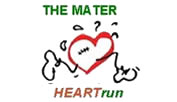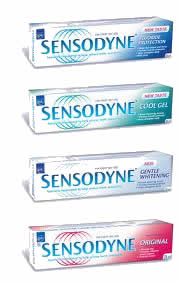PREVALENCE OF PTERYGIUM AND PINGUECULUM AMONG MOTORCYCLISTS IN NIGERIA
Abstract
ABSTRACT
Objectives: To find out the prevalence of pingueculum and pterygium among commercial
motorcyclists in Benin City, Nigeria and to note any associated or risk factors.
Design: A prospective, cross sectional, case control study.
Setting: A local Government Area (Oredo) and University of Benin Teaching Hospital, Benin City,
Nigeria.
Subjects: One hundred and forty four commercial male motorcyclists in motorcycle parks in the
local Government area and a control group of 114 male indoor workers.
Main outcome measures: Presence of pterygium or pingueculum.
Results: One hundred and forty four male motorcyclists formed the subjects of this study. The
age range was 18 to 65 years with a mean age of 34.9 ± 8.0 years. The total number of motorcyclists
with pingueculum was 37 with 26 bilateral cases, 63 eyes were involved. The prevalence rate was
25.7%. Pterygium was present in 18 patients including 12 bilateral cases making a total of 30 eyes.
The prevalence rate was 12.5% The total number of indoor workers with pingueculum was 24
and it was present in 46 eyes. The prevalence rate was 21.05%. Pterygium was present in 12 eyes
of nine persons in the control group and the prevalence rate was 7.9%. There was no association
between the duration of work as a commercial motor cyclist and the presence of a pterygium or a
pingueculum. The usage of a hat/cap was found to have a protective effect as motorcyclists who
do not wear hats are more likely to develop pingueculum than those who wear them. The use of
glasses and hats together was found to be protective against the development of pingueculum and
pterygium in this study.
Conclusion: The prevalence rate of 12.5% of pterygium and 25.7% of pingueculum in commercial
motorcyclists in this study is quite high when compared with that of the controls. The wearing of
face caps / hats was found to have a protective effect. They should be educated about the importance
of wearing protective goggles and caps/brimmed hats.
Objectives: To find out the prevalence of pingueculum and pterygium among commercial
motorcyclists in Benin City, Nigeria and to note any associated or risk factors.
Design: A prospective, cross sectional, case control study.
Setting: A local Government Area (Oredo) and University of Benin Teaching Hospital, Benin City,
Nigeria.
Subjects: One hundred and forty four commercial male motorcyclists in motorcycle parks in the
local Government area and a control group of 114 male indoor workers.
Main outcome measures: Presence of pterygium or pingueculum.
Results: One hundred and forty four male motorcyclists formed the subjects of this study. The
age range was 18 to 65 years with a mean age of 34.9 ± 8.0 years. The total number of motorcyclists
with pingueculum was 37 with 26 bilateral cases, 63 eyes were involved. The prevalence rate was
25.7%. Pterygium was present in 18 patients including 12 bilateral cases making a total of 30 eyes.
The prevalence rate was 12.5% The total number of indoor workers with pingueculum was 24
and it was present in 46 eyes. The prevalence rate was 21.05%. Pterygium was present in 12 eyes
of nine persons in the control group and the prevalence rate was 7.9%. There was no association
between the duration of work as a commercial motor cyclist and the presence of a pterygium or a
pingueculum. The usage of a hat/cap was found to have a protective effect as motorcyclists who
do not wear hats are more likely to develop pingueculum than those who wear them. The use of
glasses and hats together was found to be protective against the development of pingueculum and
pterygium in this study.
Conclusion: The prevalence rate of 12.5% of pterygium and 25.7% of pingueculum in commercial
motorcyclists in this study is quite high when compared with that of the controls. The wearing of
face caps / hats was found to have a protective effect. They should be educated about the importance
of wearing protective goggles and caps/brimmed hats.
Refbacks
- There are currently no refbacks.


